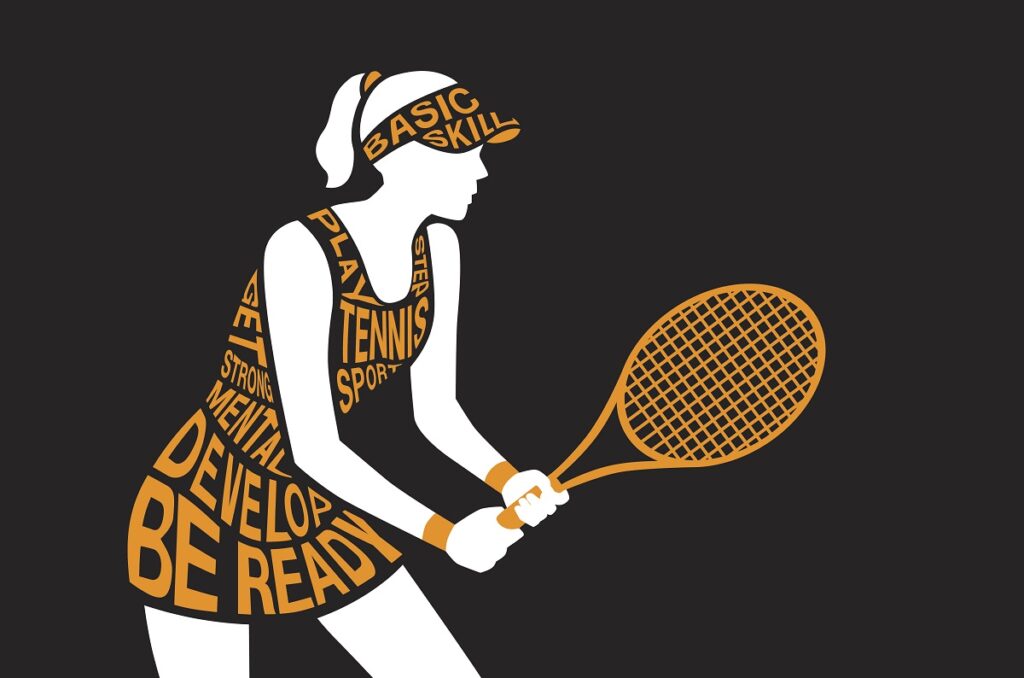The Value of a Mental Skills Coach for the iGeneration

It is no secret that the competitive tennis environment demands a great deal of mental toughness, yet so many players fail to enlist a professional mental coach. Instead, they rely on personal experience and the advice of those around them, which although helpful, it is missing the valuable mental strategies that can be taught by a certified mental skills consultant.
In what is already a challenging environment, elite youth tennis players are not clear on HOW to manage their emotions and successfully navigate the highs and lows of a competitive match. In fact, with the advancements in technology and styles of socializing, it is becoming increasingly more evident that the current generation of youth athletes is distinctly different. The iGen, as they are called, is plagued by achievement and thwarted in emotional intelligence—a lethal recipe for stress and anxiety.
In many of my conversations, coaches and parents can recognize these changes, but are ineffective at offering the level of training that a professional mental skills consultant can accomplish. Specifically, there are two major benefits of separating mental skills training, including:
1. It provides an objective outlet to have open and honest discussions
One of the most important discussions in mental skills training is on the topic of a player’s perceived expectations. In other words, what do you think you “have to” do? For many, their expectations demand uncontrollable results, such as “I have to win” or “I have to play my best all the time,” which leads to increased stress, lower energy and difficulties moving past mistakes.
As a coach or parent, it is difficult to effectively have this conversation without a psychological understanding of the interplay of processes. More importantly, when discussing emotion-driven topics, you have to be mindful of the power and control dynamics that are unavoidable between an adult working with a youth player. You can actually cause more stress by sparking conflicting emotions in a phenomenon called the “Double Bind.” For example, players rationally know that it is okay to make mistakes, but won’t allow themselves to accept them. When training with a professional mental skills coach, players can feel comfortable knowing that they have an unbiased outlet to share thoughts and emotions, with the goal ultimately of learning tangible techniques to bring to the court.
2. It is a platform to develop emotional management skills
In my experiences, I have found that the young players of today are stifled by a fear of feeling uncomfortable emotionally, which results in greater muscle tension, rapid thoughts and a weaker performance. Just think of how many times an elite tennis player chokes against a lower-ranked opponent … it comes back to a fear of feeling disappointed or embarrassed before the match even begins.
Since the iGen is increasingly more sensitive and thwarted in emotional intelligence, emotions are experienced as a disposition rather than a temporary physiological state. In other words, it’s as if the feeling of disappointment indicates that the player is a disappointment. This generalization is extremely debilitating, especially since you cannot eliminate uncomfortable emotions when competing at an elite level.
With the help of a professional mental skills coach, players are given the necessary time and space to understand and accept their emotions as a temporary experience, and they are guided to develop individualized refocusing strategies for competition. This mental shift is the key to giving young players a sense of control over their emotions, which helps replace fear with courage.
Although coaches and parents may deliver a positive and supportive message, there are tangible skills that players can learn to face adversity in competitive tennis. Furthermore, sports psychology has the potential to become a universal platform for the iGen player to learn and master the necessary emotional management skills of life.






